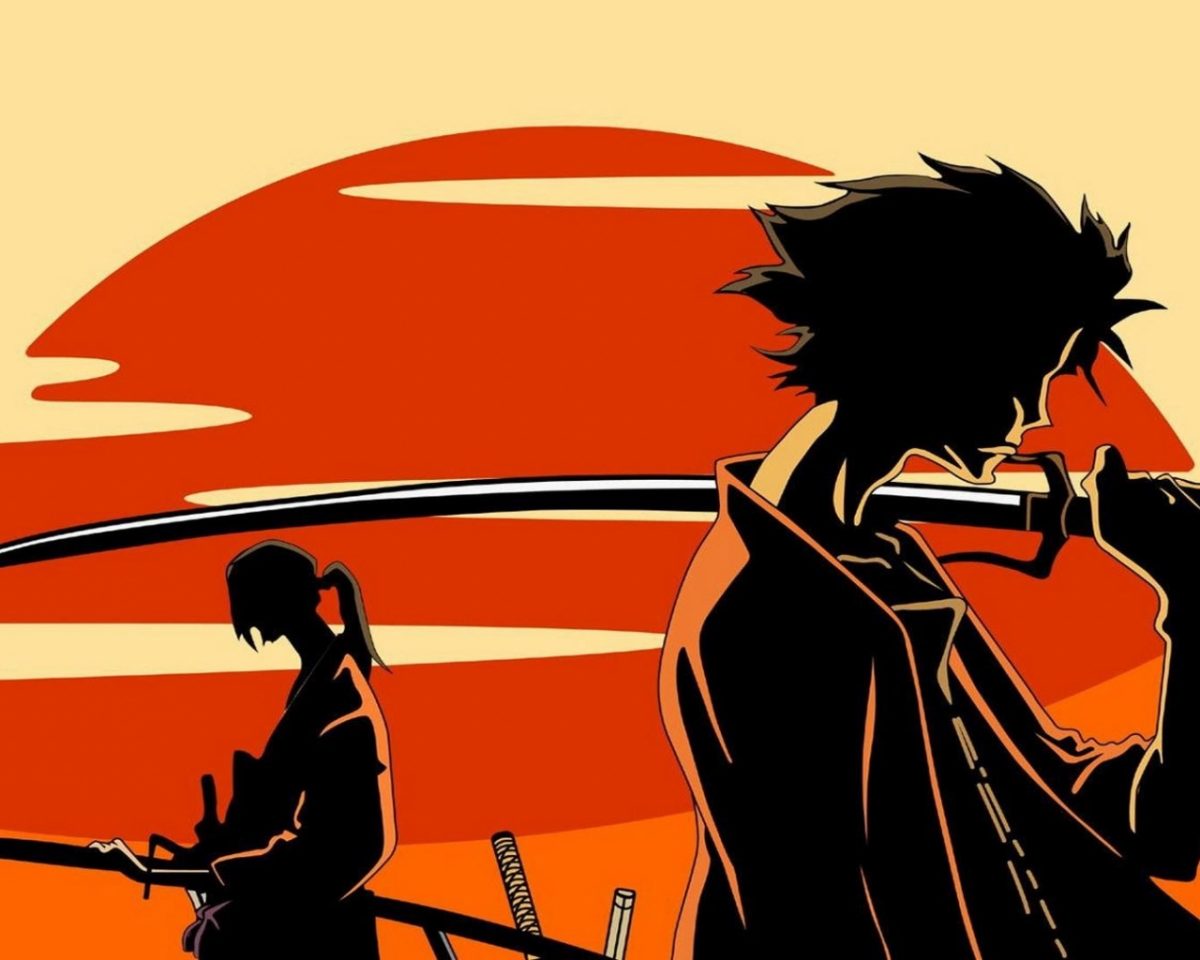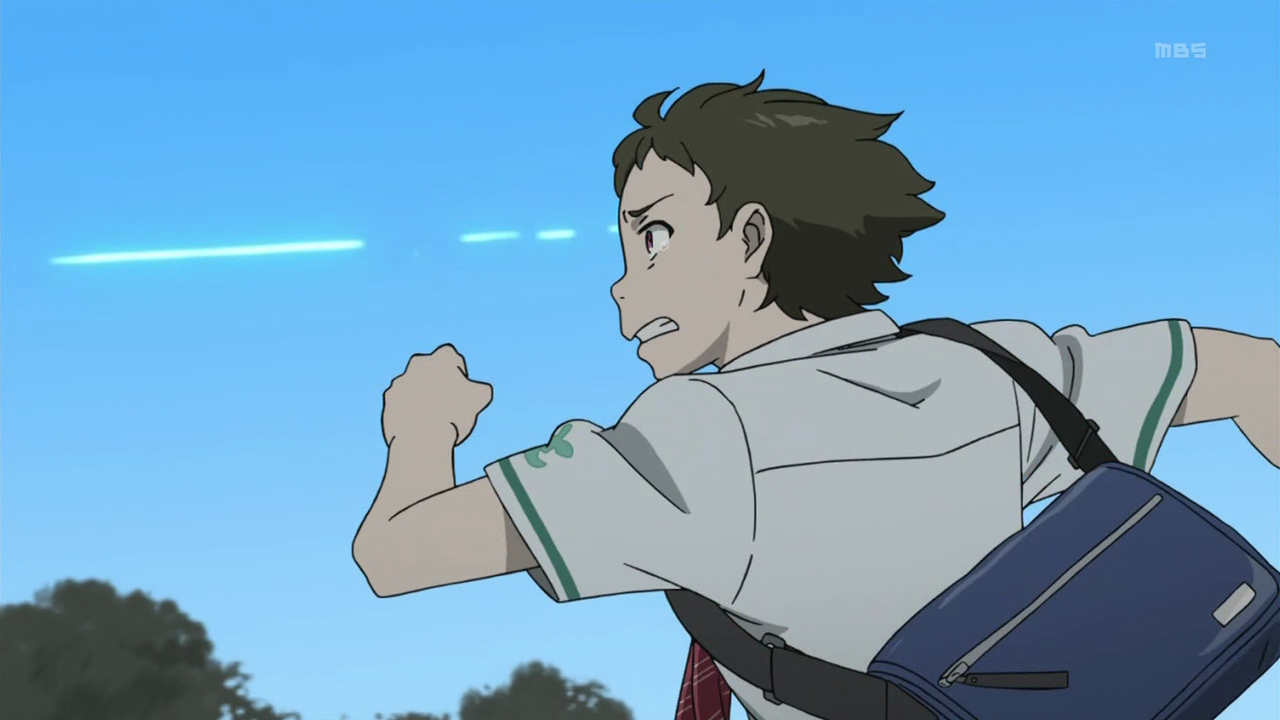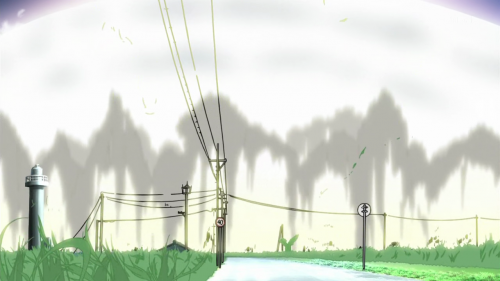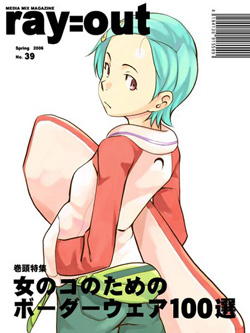It’s taken me two or three months, but today I finally finished watching Eureka Seven. Like whenever I finish reading a book or watching a long TV series, I feel like I’ve accomplished something big, but at the same time, I’ve grown attached to the Gekko-go and I’m not ready to wave good-bye. I adore Eureka Seven, but alas, I must accept this psalm of planets has come to an end — and by the way, consider that an advanced spoiler warning.
Dewey and Holland
One of the more interesting villains, Dewey was not as much driven by his often stated ambition to "take back" the Earth as he was simply unhinged and jealous of his younger brother. Dewey wanted to take back his father’s affection from the favoured brother Holland and when that became impossible, he lost meaning in his life, forever consigned to being a reject. It’s interesting that the he chose the target of his hatred to be the apparently "vicious" coralians; the “invaders” of Earth — after all, baby Holland "invaded" Dewey’s childhood. Even as he put that gun to his head, he was fighting the demons from his past.
Holland’s reaction to Dewey’s suicide revealed that no doubt, despite everything that happened, they still thought of each other as brothers. The look on Holland’s face and his subsequent mutterings suggested that he felt Dewey was not yet beyond salvation; his death was that of a lonely and deluded child, stabbing at the heart of a world that rejected him.
Eureka and Renton
The close bond shared by Eureka and Renton is carried through from the first episode to the fiftieth. It never felt forced or artificial; there was a real sense that they loved each other. By the end, their relationship had transcended physical attraction — after all, Eureka wasn’t even human. Through-out the series, she was battered, bruised, scarred and burnt — she wasn’t stunning to look at, but Renton still loved her just as much. They struggle through insecurity, embarrassment and unknown territory, yet still emerged from the series as utterly likable and heroic characters. It’s impossible not to root for them; they are the glue that holds it all together.
Allegory
In a few of my previous posts, I’ve passed comment on the allegorical content of Eureka Seven. Indeed, it’s simply a story that, while based in pure fantasy, echoes the past and present follies of mankind. For a moment, let’s look at the conflict between the humans and the coralians — this could be taken as a parallel of the Japanese struggling to accept the increasing foreign population in their country. So basically, Eureka Seven could be seen as an allegorical tale of xenophobia; about how you should try to talk with, rather than attack, the "aliens". Someone like Dewey will manipulate the media, stir up fear and incite violence, but the "enemies" are invariably the same as us; afraid to live and afraid to die.
Unite
By the end of the series, it’s implied that Renton and Eureka are to unite, to blaze a trail forwards for the future of mankind and all life in the known universe. I wonder if this was an intentionally vague way of ending the series — when they talk of becoming one, are they literally talking about physically combining as one being? Or rather, is it hint that they are to start a new family — after all, Eureka and Renton conceiving a child will lead to a true combination of both beings.
Favourite opening theme
I adored all four opening themes enough to rock out to them in my car, however, if pushed; I have to say that the punky third opening wins out for combining some wonderfully fluid and atmospheric animation with a straight forward, balls to the wall j-rock anthem. It’s just the iconic image of Renton and Eureka falling through the sky, hand in hand, dodging falling scrap metal and breaking Anemone’s lonely heart.
Soundtrack itself
I’ve talked about how great some of these characters are, and how interesting the story is, but ultimately Eureka Seven will stand the test of time because of its superlative combination of bright, colourful animation with a varied and outstanding soundtrack; it’s like the series was born as an idea when listening to particularly good song, such is the deep intermingling of musical influence with the narrative. Bands like Joy Division are regularly referenced, but, fittingly for a series that contains an impromptu rave scene, the one major point of influence is the varied genres of dance music. Two tracks in particular stand out, "Rainbow" and "GET IT BY YOUR HANDS" — both are energy generating, heart beating tunes which lace together the viewer and the burning emotion at the core of Eureka Seven’s world-effecting journey.
theEND, or bateszi=out
These are my last few sentences on Eureka Seven; I’ve had a lot of fun writing about it, but most of all, I want to recommend it. It’s not a formulaic mecha series, it’s not about battles-of-the-week; it values life, has a positive message and blossoms into a particularly gut-wrenching and epic tribute to love; not love on a superficial level, it’s hardly a "physical" series at all, rather it’s just brimming with feeling, the idea that peace is possible and that enlightenment is attainable. It borders on trippy and loses much sense of comprehensible realism, but this is pure animation, the boundless freedom and the feelings of artists conveyed through the power of a blank page and colour. I love that Renton can dive from an air-ship and surf through the clouds, just as I love that Eureka gradually sprouts wings and can fly like a butterfly.



 In my previous E7 article, “
In my previous E7 article, “